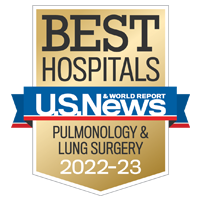
Sleep Apnea
Sleep apnea is a disorder in which your breathing is interrupted for periods of 10 seconds or more while you are asleep. These interruptions may occur hundreds of times a night, causing you to gasp for air and disrupting your sleep.
There are two main types of sleep apnea:
- Obstructive Sleep Apnea This is the most common type of sleep apnea. It is characterized by an obstruction or narrowing of the nasal passages and throat during sleep. Patients tend to wake up repeatedly to gasp for air.
- Central Sleep Apnea This type of sleep apnea is believed to be related to a malfunction of the brain's normal signal to breathe. The level of carbon dioxide in the blood rises, which may cause you to wake up.
Our Approach to Sleep Apnea
At UCSF, our sleep medicine specialists offer a comprehensive range of services and treatments for conditions such as sleep apnea, insomnia, narcolepsy, periodic limb movement disorder, restless legs syndrome and snoring. We have a sleep testing laboratory specially designed to provide cutting-edge diagnostic care in a comfortable, hotel-like setting for patients’ overnight evaluations. Accredited by the American Academy of Sleep Medicine, our sleep center sees more than 2,000 patients each year.
Treatment for sleep apnea may include lifestyle and behavior modifications, such as making changes to lose weight, sleeping on your side or stomach (rather than your back), and avoiding alcohol before bed. The most effective therapy is continuous positive airway pressure (CPAP), which involves sleeping with a face mask connected to a device that delivers air to help you breathe. For some sleep apnea patients, we may consider dental devices or surgery to reposition the jaw.
Awards & recognition
-

Among the top hospitals in the nation
-

Best in Northern California for pulmonology & lung surgery
UCSF Health medical specialists have reviewed this information. It is for educational purposes only and is not intended to replace the advice of your doctor or other health care provider. We encourage you to discuss any questions or concerns you may have with your provider.





